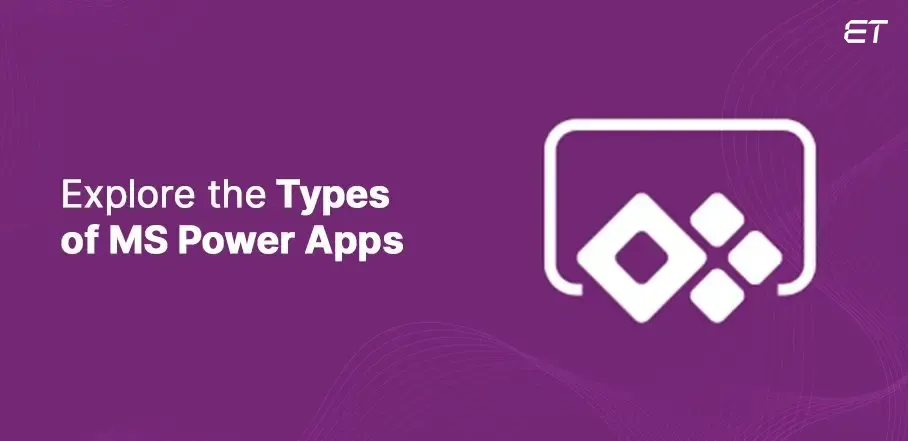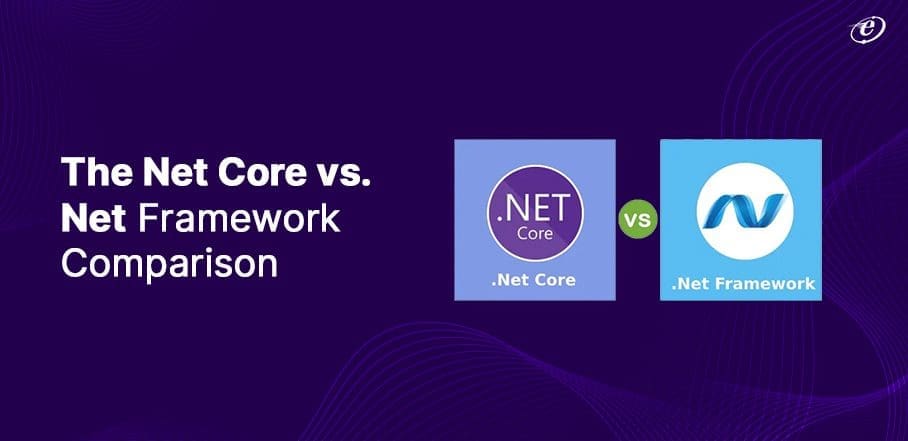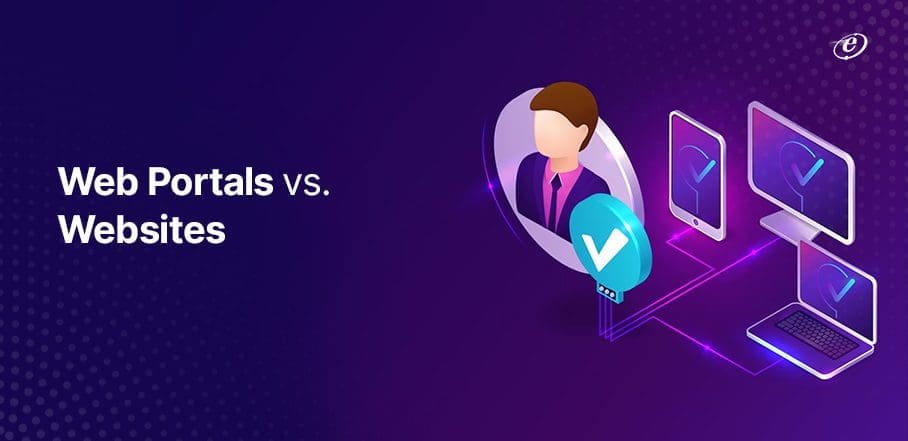
Exploring the Differences Between Web Portals and Websites
In today’s era, going digital has become a necessary activity for your business. Whether creating enticing websites or developing helpful web portals, it is crucial to build a solid presence on the internet.
In fact, 71% of businesses across the globe have functional websites. This statistic means you need to stay active and approach reliable software development companies to sustain yourself in the competitive market.
When you delve deeply into creating an online brand, experienced web development companies can ask you a common question – do you want to create a website or a better online portal?
Well, the exact answer can vary depending on your existing digital assets. As a business, knowing how to utilize web portals and run a website simultaneously is crucial. For this purpose, knowing the difference between the two is essential.
Scroll ahead to note the major differences between portals and websites. You can also get to understand a professional web portal development vendor at the end of the blog.
What are Web Portals?
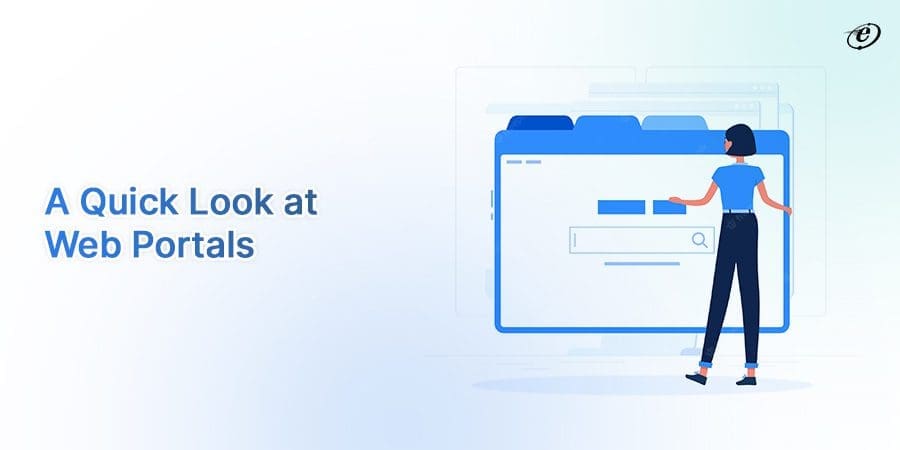
In simple terms, a portal is a gateway or entrance that leads a person to a valuable resource. Along the same lines, web portals are unique online management systems with information from various relevant sources.
While developing portals, software engineers ensure that the following sources collect relevant information to create a comprehensive database:
- Search engine
- Emails
- Online forums
- Web servers
- Cloud
You can consider web portals as customized websites or web pages. The main intention of building a better online portal is to assist a specific audience in accessing particular data.
An ecommerce portal is a prime example of these online systems. Surely, you are familiar with Amazon. This online shopping brand has an engaging portal compatible with desktop and mobile devices. In this case, the target audience is customers who want to purchase certain goods or services.
To utilize web portals, users need to enter the system using a login ID and a password. All the recommendations and actions are tailor-made as per the user’s requirements.
Here is some quick information on the different types of web portals.
Table: Web Portal Types and Brief Explanation
| Sr. No. | Type | Explanation |
|---|---|---|
| 1 | Ecommerce Portal | Brands sell their products and services. Customers can make online payments to purchase the goods |
| 2 | HR Portal | Employees can access details on HR policies, workflow, and regulations of an organization |
| 3 | Educational Portal | Institutes upload documents, academic resources, and notifications related to exams. Students and staff can access details on curricular and co-curricular events |
| 4 | Information Portal | The company publishes articles, informative videos, or subscription news on specific topics. Users can login and receive access to content relevant to their interests |
| 5 | Corporate Portal | Organizations provide relevant data pertaining to the products, happenings, updates, and activities. Distinct platforms are available for employees, clients, and third-party vendor |
What are Websites?
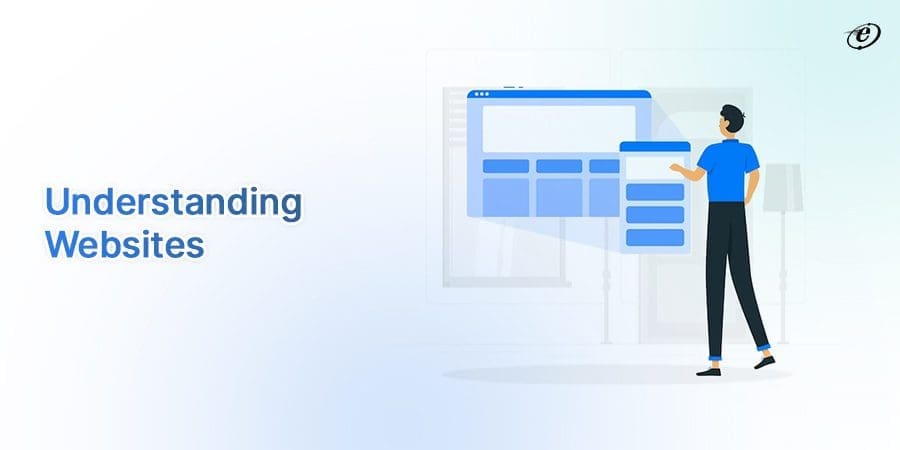
In simple words, websites are a collection of web pages on the internet.
Here are the main types of segments of a typical website:
- Homepage
- Landing pages
- Product pages
- Service pages
Users access a company’s website using a uniform resource locator (URL). Companies need a server and hosting service to make the brand’s website visible to the target audience.
On the whole, content, graphics, and navigation are the key elements of a website. These web pages are different from web portals in many ways. For instance, you do not need a login ID or password to navigate a website. Also, the interaction elements are limited or, in some cases, non-existent.
Here are some of the prominent and well-known types of websites that you can come across:
Table: Website Types and Brief Explanation
| Sr. No. | Type | Explanation |
|---|---|---|
| 1 | Ecommerce Website | Provide customers and buyers with relevant information to enhance their shopping experience |
| 2 | Business Website | Offers insights on a business’s products, services, resources, and team. Clients can read insightful content on such websites |
| 3 | Portfolio Website | Display links to art, photos, projects, and other resources for promoting specific services |
| 4 | Online Forum | Discuss ideas and relevant topics with like-minded individuals across the globe |
| 5 | Entertainment Website | Publish blogs, articles, and news related to the entertainment industry. |
Web Portals vs. Websites: A Head-to-head Comparison
Before choosing web portal development services, it is crucial to understand the intent behind developing such digital assets. This section explains separate points that help distinguish web portals from websites.
#1 Features of the Online Page(s)
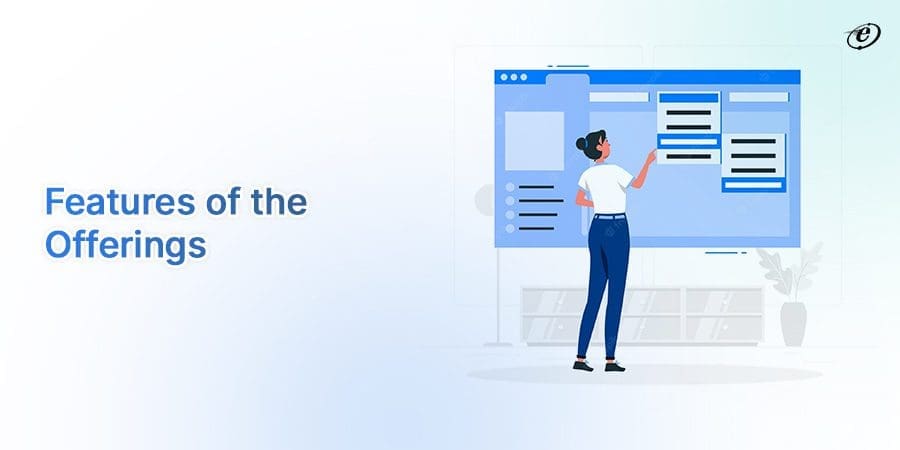
In the case of web portals, the features and other attributes are entirely user centric. Whether employees, customers, or other staff members, any individual can access the features of such digital systems.
If you develop a website, the features are in control of your organization. You can decide the elements of a website, information to display, and other auxiliary parameters. Since the user doesn’t log in and has a separate unique account, it is not possible to save products or perform activities like online payment.
#2 Interactivity and Responsiveness
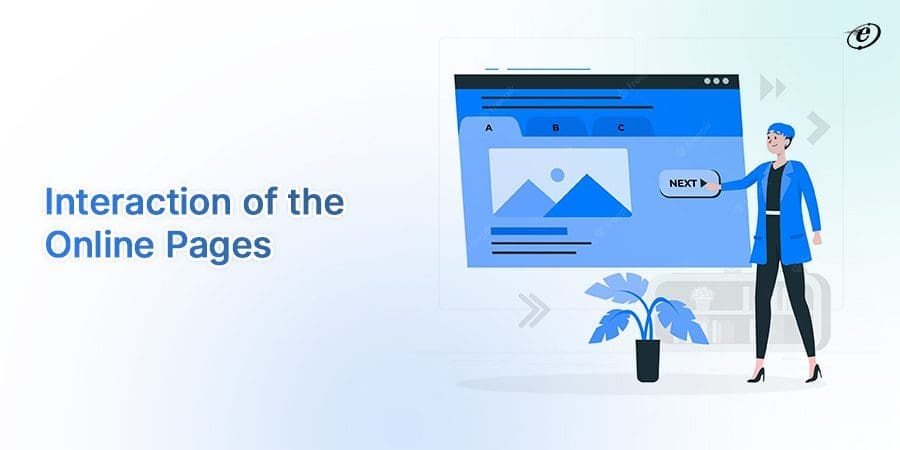
You might be familiar with an ecommerce portal portraying various functions of interactivity. Be it a chatbot or gamification element, such web portals are well-known for an engaging user experience. So, users have continuous interaction with the pages to perform the required actions.
On the other hand, you cannot interact with a website and perform various actions. Most of these web pages are available only for viewing purposes. At the most, you can use a live customer support chat on some websites.
#3 Type of Content and Personalization
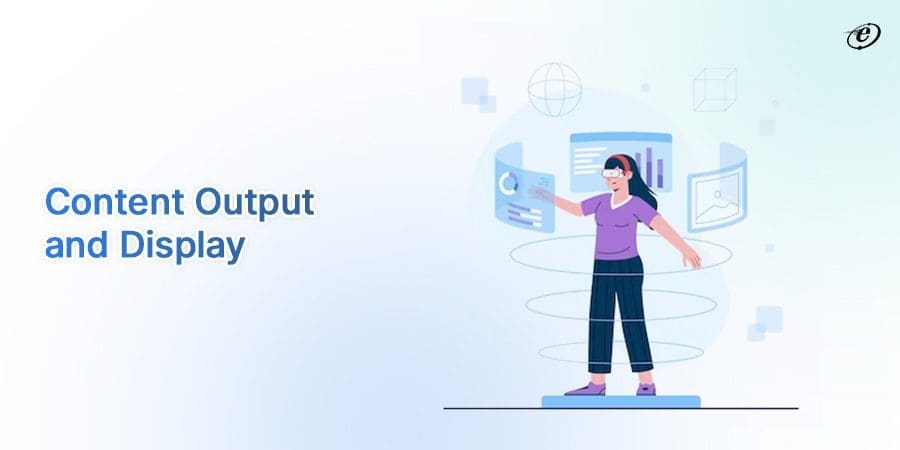
While developing portals, software engineers pay close attention to the personalization factor. So, the content type and recommendations are tailor-made to the user’s preferences and requirements.
On the contrary, websites provide the same information to all visitors. There is no scope for offering personalized content suggestions. At best, you can read blogs relevant to your specific search query. However, the type and quality of content impact your overall experience of the website.
#4 Nature of Access Levels
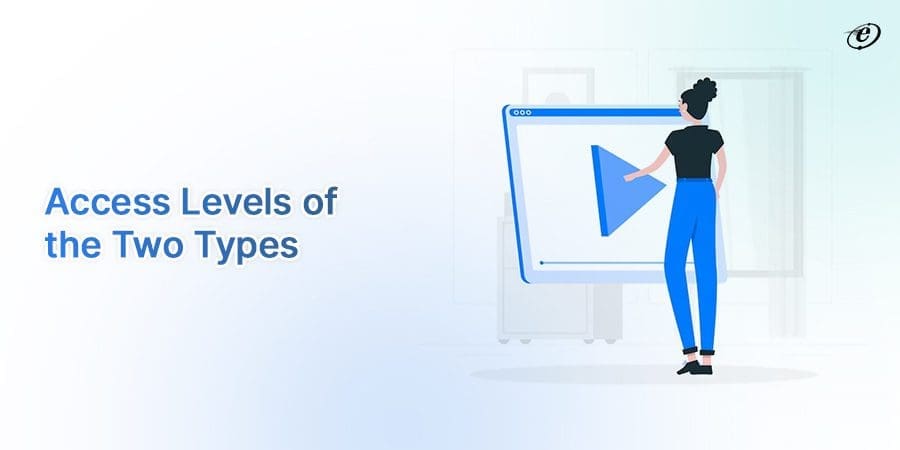
In the case of web portals, different admin teams are in charge of managing various access levels. For instance, a portal can have certain sections for employees, decision-makers, and third-party vendors. The information requirement and level of confidential data varies for each category of user.
So, while developing portals, the developers need to install distinct levels of security.
For websites, you only need a single team to manage user access. Notably, websites do not have confidential details of a company on display. So, there is no requirement for creating separate codes and segregating usage levels.
#5 Information Source Updates
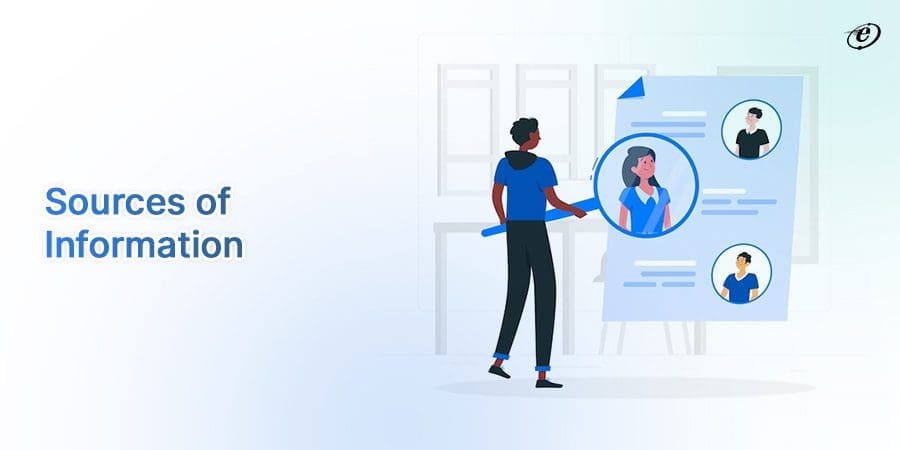
To build a better online portal, you need to create and update information sources regularly. This way, the target audience receives up-to-date data as per requirement. Also, compiling relevant content becomes a seamless process.
On the contrary, website information sources do not require frequent updates. All the data and content are in the form of uploads by the digital team. So, in this case, websites are simple to manage.
A Quick Overview of Web Portals and Website Comparison
This table covers all the crucial points that differentiate portals from websites. After understanding the differences, you can consider approaching an IT vendor for web portal development or creating a website.
Table: Web Portals vs Websites
| Portals | Websites |
|---|---|
| You need to login to access portals | There is no special requirement to login to view a website |
| The construction is modular | The overall construction of a website is simple |
| The security of a portal is complex | The control mechanism and security are simple |
| They are tailor-made for specific users | Websites display the same content for everyone |
| Content management is advanced | Content management is simple |
Overall, web portals and websites have several apparent differences. So, knowledge of these facets becomes crucial to making the best decision.
In a Nutshell
Web portals are helpful if you want to provide exceptional services to the target audience. A better online portal has features that can add convenience to the end user. As a result, the choice of your web portal development partner becomes very crucial for developing portals.
On the contrary, websites are the online face of your business. Depending on your organization’s budget and requirements, they can be static, dynamic, or interactive. The content and information on websites are similar for all visitors. Also, you do not need to request that users create a unique login ID to access websites.
The choice between web portals and websites depends on your business tenure. Creating websites and portals is a good idea if you have the budget and requirements. However, if you are a budding start-up with limited finances, focus on developing an SEO-centric website.
In any case, eLuminous Technologies Pvt. Ltd. can assist you profoundly. Be it web portal development or the creation of a mobile-friendly website; you can contact our experts to initiate a professional digital process.

